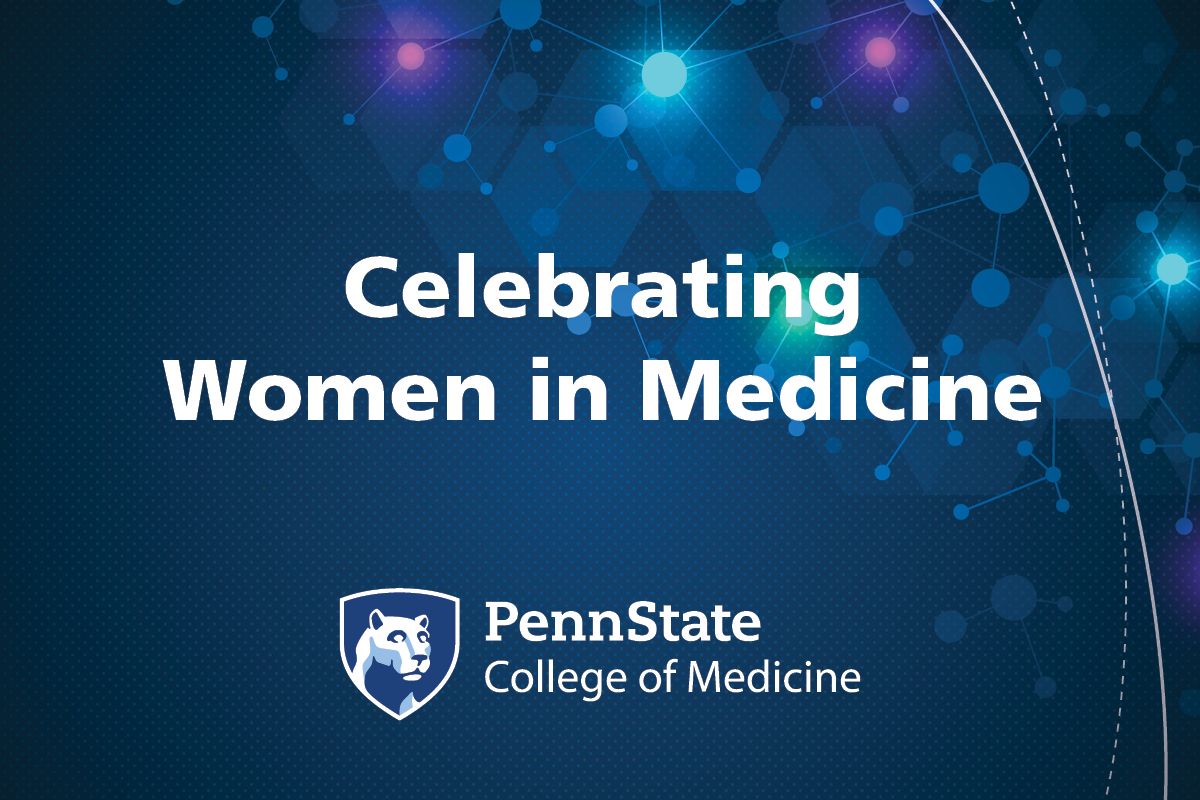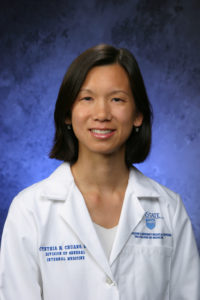Women in Medicine: Cynthia Chuang, MSc, MD

September is Women in Medicine Month, presented by the American Medical Association Women Physicians Section. Penn State College of Medicine honors Dr. Cynthia Chuang of the departments of Public Health Sciences and Obstetrics and Gynecology in part two of this seven-part series.
When she was studying and starting her career, Dr. Cynthia Chuang didn’t sense any barriers as a woman in her field. She just followed the lead of her male peers.
“When I was coming up, there wasn’t a space to talk about women in science and medicine and the struggles we faced,” said Chuang, Penn State College of Medicine Kenneth V. and Eleanor M. Hatt Faculty Fellow in Internal Medicine and chief of the Division of General Internal Medicine. “I just accepted that was the way it would be.”
Chuang, who also is a professor in the Departments of Public Health Sciences and Obstetrics and Gynecology, said when she began her career, talking about family and children during a job interview would have had interviewers questioning the candidate’s dedication to the position.
Now, years in to her career ― 17 of them at Penn State Health and Penn State College of Medicine ― Chuang realizes she has witnessed a true culture shift. Medical students and residents openly talk about their family life and their personal needs. As a division chief, male staff members ask her about taking time off because of family issues.
“The changes that have happened are all good,” she said. “It’s great that people can be open about how their work needs to blend with their family obligations.”
But even though many College of Medicine students are female, and women faculty members have increased, she still sees a glass ceiling ― not only at the College of Medicine and health system but in health care nationally. There are still too few women in medical and science leadership, she explains.
Many times in meetings, Chuang, who is Asian American, will be the only woman and only nonwhite person in the room. She believes diversity is important in leadership roles because it provides a greater mix of voices and ideas.
That greater diversity also might help women see themselves as leaders. It took a male colleague to convince her that she should be a division chief. He talked to her several times, saying he would be glad to work for her.
“He said it enough times that I started to believe it,” she said with a laugh.
The mother of two teenagers, Chuang is happy with her dual roles in her personal life and professional one, which includes doing research focused on women’s reproductive health. She credits her many mentors for helping her along the way, helping her learn to deal with challenges.
“I could not have done many of things I have done without mentors,” she said. “I have several mentors who are proud of my successes.”
Now, as a mentor herself, Chuang tells students a career in medicine and science is filled with rewards and challenges. As a doctor, she is honored that she has been a part of some patients’ lives for years. They have trusted her and shared their joys and hardships with her. She would recommend that kind of career to more women.
As for creating more pathways for women in leadership, she says women need to continue pushing forward.
“I don’t think women can solve these problems by themselves,” she said. “It takes the whole culture, our whole society. And we need to thank men when they are part of our support system.”
If you're having trouble accessing this content, or would like it in another format, please email Penn State Health Marketing & Communications.

